 Christine Quinn has been a housing advocate, an anti-violence advocate, a campaign manager, the New York City Council president, and, at all times, a force of nature. She’s a savvy political player, not afraid to use power to achieve her goals and, some critics say, punish her enemies. Now she’s in a race to become the first openly lesbian mayor of the nation’s largest city. After wearing the mantle of inevitability for most of the spring, Quinn now finds herself neck-and-neck with former Rep. Anthony Weiner heading into the final stretch before the Democratic primary in September.
Christine Quinn has been a housing advocate, an anti-violence advocate, a campaign manager, the New York City Council president, and, at all times, a force of nature. She’s a savvy political player, not afraid to use power to achieve her goals and, some critics say, punish her enemies. Now she’s in a race to become the first openly lesbian mayor of the nation’s largest city. After wearing the mantle of inevitability for most of the spring, Quinn now finds herself neck-and-neck with former Rep. Anthony Weiner heading into the final stretch before the Democratic primary in September.
As part of her campaign, Quinn wrote With Patience and Fortitude: A Memoir. The book is a departure from the standard political memoir; Quinn wrote more about her personal struggles, include with alcoholism and bulimia, as well as her mother’s death. For a politician who is renowned for her toughness, the introduction of such personal issues was seen by some as an effort to soften what The New York Times called her “rough-edged political image.”
In an exclusive email interview with Queerty, Quinn opens up about her relationship with the Catholic Church and Cardinal Timothy Dolan, reflects upon the changes in gay politics over the past 20 years and explains what she can offer LGBT New Yorkers that the other candidates cannot.
As head of the Anti-Violence Project, you were in the forefront of the battle against gay bashing. Yet, 20 years later, New York City has had a particularly violent spring. Why does that level of violence persist, and what would you be able to do about it as mayor?
How about we take this to the next level?
Our newsletter is like a refreshing cocktail (or mocktail) of LGBTQ+ entertainment and pop culture, served up with a side of eye-candy.
The recent spark of anti-gay violence has devastated New York as a community. Coincidentally, this rash of extreme violence arrived on the heels of major victories for LGBT rights that have been covered widely — and also celebrated across New York City communities and neighborhoods. The point is — we still have so much work to do. A victory for marriage in Washington or Delaware, or even in New York, does not mean that homophobia doesn’t persist, and does not mean that
there are not deranged people out there.
I learned over 20 years ago that when a hate crime occurs, an overwhelming community response is needed immediately to send a message that it will not be tolerated. As Mayor I will speak out forcefully against hate crimes. When the spike in anti-LGBT violence crested earlier this summer, I immediately worked with law enforcement to implement heightened security in key areas – we beefed up police presence around the clock, installed extra floodlighting and extra security cameras in real time. Through my office we are also offering a free series of self-defense classes to any New Yorker who wants them. We worked with the Department of Education to address this issue in schools, and with the faith community to encourage a dialogue about diversity acceptance of all people.
There have been at least two incidents lately in which other mayoral candidates let antigay comments slide by without reaction. Were you surprised by the silence? Do you think comments that had racial or religious overtones would have met with the same reaction?
New York is one of the most diverse cities in the world, and it is a city that draws strength from that diversity. As a candidate, you are asking New Yorkers for their vote. No prospective leader should stand by as any slurs fly, under any circumstance.
The Archbishop of New York has always been a key figure in the city’s civic life. What is your relationship like with Cardinal Dolan? Has it been complicated by your participation in a protest about the pope’s visit to St. Patrick’s Cathedral?
Cardinal Dolan and I disagree fundamentally on issues of LGBT civil rights, and year after year I have made the choice not to march in the citywide St Patricks’ Day Parade, due to their exclusionary policies on LGBT marchers. As long as they continue to exclude gay marchers, I will not participate, and it is as simple as that. It has complicated the relationship, but we are also able to work together on other areas to benefit New Yorkers – for instance, on social service nonprofits, many of which serve hundreds of thousands of needy New Yorkers each day, including seniors. Listen, I’m sure the Cardinal was not a huge fan of my participating in a protest against the Pope coming to New York, but I am sure he also wasn’t surprised.
On a related question: you said recently in an NPR interview that your Catholicism is really a part of who you are and that you have no intention of leaving the church. A lot of people in the LGBT community wouldn’t be able to understand that. Also, even as you disagree with some Church positions, it must be painful to experience them. Can you explain why you see your faith as integral to your personality?
My father, Lawrence Quinn, is in his 80s and the church is a big deal to him. Having the opportunity to put him on the phone with the Cardinal on his birthday was a real joy for me and my family, and taking him to evening Mass has been a family tradition. I think this is something that many of us go through — we disagree fundamentally with the church on LGBT issues and a woman’s right to choose, but faith is part of our lives. There are LGBT Catholic organizations in New York City, for example. Faith is an intensely personal journey that many LGBT people embark on.
With a name like Quinn and a family from Cork, you’re a natural to march in the St. Patrick’s Day parade, but stood on principle and chose not to because of its exclusionary nature. Would that change if you were mayor?
And the red hair. But seriously – until the parade changes its exclusionary policies on LGBT people marching, I will not march, and that will not change when I am Mayor — though I will continue to raise the issue with them every year.
You’ve spoken about your own struggles with bulimia and alcohol in the past and how they began when you were dealing with your mother’s final illness. Do you think those struggles were exacerbated in any way by issues you may have been having with your sexual identity?
Of course.
New York City has come a long way from the days when a slogan like “Vote for Cuomo, not the Homo,” could be openly used by a candidate’s supporters. But from your perspective, is homophobia truly no longer an issue in a citywide election? If not, what form does it take nowadays?
We have come a long way, it’s true – there is still further that we need to go. In fact in this day and age, I don’t think that you could get very far in a citywide election in New York City regardless of party if you talked like that. But homophobia persists in other ways that can be covert and continue to be widespread in that way. It is key that the LGBT community has a place at the table. Only that way will our issues be at the forefront.
You’ve been involved in politics since the dark days of the AIDS epidemic to the time when you were able to marry your partner. From a political perspective, what is the single greatest change that you have seen on LGBT issues in the City since the 1990s, and what’s the single biggest barrier that remains?
This change is a testament to decades of activism and hard work at all levels of the community that endures to this day. One of the greatest changes is that, these days, as a politician you don’t get very far on a big stage like New York if you are bad on LGBT issues. It wasn’t always that way. For example, my political club, the Gay & Lesbian Independent Democrats, used to have a question on ourquestionnaire that asked “Will you spell out our group’s name on your literature?” They literally would use the initials G.L.I.D., but it was important to us that they spell it out. We’ve come a long way!
This has been mirrored nationally – look at President Obama coming out for marriage equality soon before what was supposed to be a close election. It’s a testament to the LGBT and ally communities insisting that elected officials be held accountable – and they are.
Your career could be viewed as a kind of metaphor for the change in the LGBT community, from movement activism to insider politics. What do you think have been the biggest changes within the LGBT movement?
We have learned not to ask for, but to insist on our rights, and realize that strength comes through leadership and visibility. I think that we have become a more diverse and multigenerational movement as well.
Besides the symbolic significance (which would be enormous) of having a lesbian mayor, what can the LGBT community expect from you that they couldn’t expect from other candidates? What do you believe you can do as mayor to address the community’s issues that the other candidates cannot?
Experience and vision – and, again, that place at the table, which is crucial. My record of accomplishments on the community’s behalf isn’t matched by any of the other candidates in the race. I have a two-plus decade record of results.
From changing the way the NYPD handled anti-LGBT violence as Director of the AntiViolence Project in the early 1990s, to developing the HIV/AIDS Services Administration, to playing an integral part in the fight for marriage equality and protecting funding for LGBT homeless and runaway youth as Speaker – I have delivered positive, affirming change for the community throughout my career in public life.
But the work doesn’t stop there. This week, I released my LGBT Policy Plan, detailing what my focus will be as Mayor onbehalf of the LGBT community.
These include eradicating anti-LGBT hate crimes, creating the first LGBT senior housing community, a focus on transgender civil rights, eliminating the waiting list for beds for LGBT homeless and runaway youth, the creation of the Mayor’s Office for HIV/AIDS Policy and being a powerful presence in Albany to fightstatewide. We also need to improve data collection as a city to ensure we are raising the level of community services for LGBT New Yorkers.
You’re hardly a single-issue candidate, but do you think some voters still see you solely through the lens of your orientation? do you think people will simply not vote for you because you’re a lesbian? On the flip side, would you be disappointed if people voted for you solely because you’re out?
I understand that being the ‘x identity’ candidate makes you stick out. It’s what is written about and how people introduce me the most and have known me all through elected office and public life–since there are so few out elected leaders, and women leaders. I hope that no New Yorker wouldn’t vote for me based on who I am, but chances are that vote wasn’t in play to begin with. I hope voters see the big picture, and I am working hard to share a broad vision with New Yorkers each day.
Marriage equality is a reality in New York State, but not directly across the Hudson. Is there anything you can do as mayor to help influence the spread of marriage equality in the immediate region?
I will continue to lobby Governor Christie and try to get his support, but on a more personal level, I want to reach out to community leaders
in NJ and usetheir influence to connect with LGBT folk and potential allies in NJ. There are a lot of people who commute in from New Jersey who work here and so are crucial to enacting the cultural change needed to rally support for marriage equality in New Jersey. As we have stood up and demanded to be heard in New York –LGBT community voters and their allies must do the same in New Jersey to enact real change.
And, finally, what would it mean for you to be the out mayor of the biggest (and for many of us, greatest) city in the nation? When you started working in politics 20+ years ago, would that even have seemed possible?
New York is the greatest city in the world, and being Mayor the best job in thecity. I think the most powerful message is that anything can happen in New York – anything is possible.
Photo credit: David Shankbone

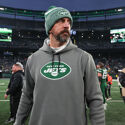
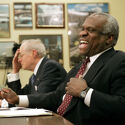
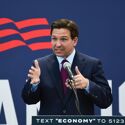
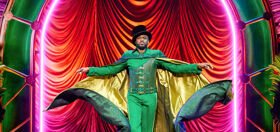


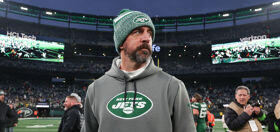


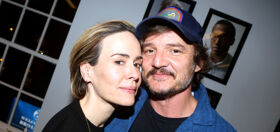
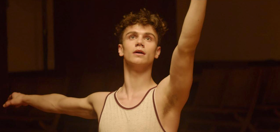
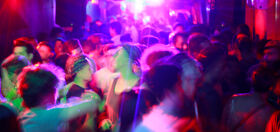
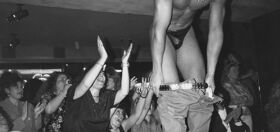

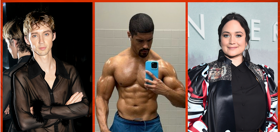
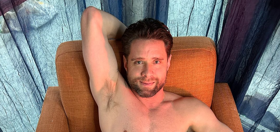
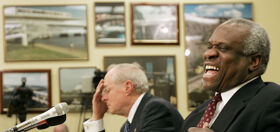
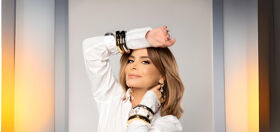
Scott Rose
I am sickened to the pit of my stomach that Speaker Quinn would choose to enable Dolan by having Dolan speak to her father on her father’s birthday.
When Dolan took to his blog and trashed a 16-year-old alleged female victim of Church sex abuse in the Bronx, not a single NYC elected official would go on record saying that what Dolan did was wrong. Shame on Speaker Quinn for not speaking up to help that 16-year-old female who was being attacked by the most powerful Catholic in the city. Shame!
And, part of enabling Dolan in that way — of making him immune to criticism from elected officials for his attacks against innocent young people — also enables him to incite to violence against us.
Yes! When a powerful figure alleges that our civil rights as gay people are “against God” and will provoke the downfall of civilization, et cetera, that is potent hate speech that has a connection to the eventual violent attacks against us.
In New York, New Jersey and other places, right now Dolan is fighting tooth and nail against proposed legislation to lift the statutes of limitations for prosecution of child rape. THAT is the man who is demeaning gay-headed families.
At this link is where you can see Dolan and his friend Bill Donohue trashing a 16-year-old female. I called and wrote to Speaker Quinn’s office about this and got no reply whatsoever.
http://blog.archny.org/index.php/gratitude-to-the-catholic-league/
nuadam
The crowd marching with Quinn at the pride parade went for blocks and blocks and blocks. It was pretty inspiring.
Kieran
To finally having an (openly) gay Mayor of the greatest and largest City in the USA would be a tremendous milestone for the gay community. It’s time.
RomanHans
The LGBT community has been priced out of that place on the table. Mayor Bloomberg and Ms. Quinn sold Manhattan to developers, and now we’ll be watching them dine with building developer and hedge fund managers from our studio apartments in New Jersey.
Me, I’d prefer that gays have an actual place in New York than at some table with her, but at the rate our neighborhoods are disappearing the only chance we have is if Ms. Quinn loses the mayoral election.
Scribe38
No dog in the fight, live in Michigan, but would sale my vote to Weiner if he sent me some pics on the cell phone. :-0
hyhybt
I wish we had viable candidates like her here!
Daniel-Reader
Why does it smell like garbage? What has she done to make it smell better? London, Seattle, Toronto, Paris, heck even LA with its smog don’t smell like that.
hyhybt
@Daniel-Reader: I don’t know. I’ve known buildings that developed a certain smell, sort of ingrained, that couldn’t be got rid of with any amount of cleanliness.
andy_d
From my understanding, she has done a good job – of throwing the GLBTQ community under the bus when they don’t fit into HER agenda.
louisflores
This interview is extremely biased. I have been collecting research for my book, “Roots of Betrayal : The Ethics of Christine Quinn,” which is being serialised this summer, and I base my response on the research I have collected. First of all, what impact has having had Christine Quinn “at the table” meant for LGBT New Yorkers ? Let’s look at how the police treat us. The NYPD systematically harass, menace, and profile LGBT New Yorkers. This happens at gay bookstores, out on the street, and at political gatherings. We get discriminated against by the police, and what has been Speaker Quinn’s reaction ? Nothing. In the time that she has been Speaker of the City Council, during which she has had a major say in the city’s budget, she has approved the full NYPD budget without ever once holding the NYPD to account for their use of stop and frisk against LGBT New Yorkers. Transgenders and gender nonconforming New Yorkers are harassed by the cops, and what does Speaker Quinn do ? Nothing. In this article, she takes credit for mobilising the cops in response to the recent spree of violent hate crimes against gay men, but what act has she ever taken to demobilise the police from harassing, discriminating, or using brutality against LGBT New Yorkers ? Nothing. What has it meant to our daily experience to have an LGBT Speaker “at the table” ? If you are an LGBT New Yorker of color, you are on your own. Speaker Quinn won’t speak up for you. She exploits hate crimes for her own political gain when they happen, so that she can get photo ops with the press, but when it’s all said and done, she goes back to her office, and we are all left at the mercy of the systematic discrimination that runs rampant within the NYPD.
And not once has Speaker Quinn taken any action during her term as Speaker to end the problem of LGBT homeless youth. Only now, when she is running for mayor, does she offer ideas or plans. But what has it meant to us all along to have had her “at the table” ? It’s meant nothing to us. She tries to take credit for marriage equality, but there marriage equality came about as a result of direct action undertaken by activists connected with the group Queer Rising. Speaker Quinn never risked any political capital to make marriage equality happen, but she sure loves to step in and collect the accolades. And, sadly, if you take a close look at her record, you will see that her being a member of the LGBT community has meant nothing to her in all these years that she’s been “at the table.” The only thing you can count on when Christine Quinn is “at the table” is that she will engulf and devour all the privileges of political incumbency until she’s had her own fill. Meanwhile, we — the LGBT masses — are denied any role in our own governance, and we are thrown the scraps of empty promises and rhetoric to keep us subjugated to Speaker Quinn. How can she claim to be fighting for LGBT equality when she believes that she is more equal than us ? You only have to look at the state of exploding HIV/AIDS transmission rates happening right now to see the low level of commitment she makes to cornerstone LGBT issues.
Because Speaker Quinn’s political campaign in collapsing, she is desperate to make appeals to what should be her base of support. Were it not for her years of betrayals, she should have this mayoral race in the bag, but she does not. It is a shame that Queerty would participate in the further demobilisation and disempowerment of the LGBT community by printing this biased interview.
manjoguy
Tough choice for New Yorkers – both bad. Anthony David Weiner would be a joke. How could anyone vote for a politician who lied?!!! (It’s not about the pictures he sent. It’s the fact that he lied about it. And now he expects people to vote for him?!!!).)
kiddinthecity
After I stop scratching my head at the piece that appears here claiming to be an unbiased interview–but what may as well be a paid political ad complete with a link to the candidate’s platform–I must concur with Lousflores, above. Quinn has been no friend to the LGBTQ community, or really to any community, throughout the 17+ years of her calculated, extremely focused mission to be New York City’s first woman mayor. Quinn can’t even remember when she was at what was then proudly called The New York City Gay and Lesbian Anti-Violence Project (before her politically-motivated scramble for its directorship resulted in dropping ‘gay and lesbian’from the agency’s name), stating in the above emailed soundbites that she was there in “the early 90s”; either her memory is faulty again or she is hoping to falsely take credit for the organization’s groundbreaking establishment of services to the LGBT community and its incubation of a nationwide network of Anti-Violence agencies that happened well before she arrived toward the end of ’96. It should also be noted that because of her lack of interest in providing those services and her primary focus of furthering her own political ambitions during her brief tenure there, which served as a stepping stone between her rise through the ranks at Councilman Tom Duane’s Office and her long-planned run to succeed Duane at City Council, literally every one of AVP’s trained volunteers and all of its celebrated and award-winning professional staff left en masse under her self-indulgent reign. And while it is true that she continued to build upon the fundraising momentum begun by her predecessor at AVP, riding the coattails of the Clinton economy and increasing pro-gay visibility in 1997 and 98, she also moved AVP from a highly visible active neighborhood storefront with drop-in and emergency appointments available to a nondescript corporate entity on an office floor overlooking a ramp to the Lincoln Tunnel.
Queerty’s softball approach to this interview was laughable: no questions about her never-resolved slush fund scandal; no discussion of her ultimately unsuccessful single-handed three year blockade of getting paid sick days through the Council–which her campaign now unbelievably tries to take credit for brokering; not one question about the daily-increasing numbers of highly respected people in many fields who finally are risking the wrath of her and her cronies to come forward to question her ethics, her memory, and her current agenda; no request for comment about her turncoat ties to luxury real estate developers after shunning the very tenants who she used to get her foot in the door politically; and no talk of her vindictive well-documented use of City Council funding as a way to curry political favor or mete out punishment, to name but a few topics that might have been of interest to your readers.
In the shamelessly substance-free interview above, Quinn at least is true to megalomaniacal form in providing what she always has: meaningless answers designed to please everyone with no action plans. For example, how exactly does she propose to ‘eradicate’ anti-LGBTQ bias crime? (The notion of her claiming devout Catholicism while being a married Lesbian is a conundrum, as is her plea to be beloved for admirably not marching in the St. Patrick’s Day Parade while bragging about throwing her weight around to impress her father with a birthday call from known pedophile conspirator, Cardinal Timothy Dolan.) This person is not only unqualified and not the right person for the job, this person is possibly delusional. I long for the day when we can have a viable LGBT candidate for Mayor of the City of New York. Christine Quinn is not that candidate.
hyhybt
“How could anyone vote for a politician who lied?!!!”—Good luck finding them that don’t.
LostSoul
Wow, what a softball interview! How about asking Speaker Quinn about closing St. Vincent’s Hospital in the West Village as part of one of her many backroom deals with politically connected real estate developers? Or about her unconditional support for police commissioner Ray Kelly despite his department’s continued (and unchecked) harassment of, and violence against, trans New Yorkers? Or about the revelation (in today’s Daily News) that she funneled over $3 million tax dollars to non-profits that had made large donations to her campaign?
The Quinn campaign is finally figuring out that she can’t count on the LGBT community to vote for her as a bloc and if Queerty wants to be taken seriously as a media outlet it should be asking questions the voters actually want answered instead of running interviews that read more like the work of a campaign PR flack than that of a journalist.
Christopher
SATAN TO ENDORSE CHRISTINE QUINN
Dateline, Hell’s Kitchen, July 3 – According to insiders at Satan’s Manhattan PR Firm, the Prince of Darkness intends to make it official and endorse Christine Quinn at the Upcoming “Bonfire of Humanity” Satan who many have long believed was growing quite tired of all the Conspiracy Theories surrounding his alleged involvement in a number of recent elections around the globe, isssued a brief statement, “There are few candidates who so uniquely and thoroughly embody the godless, the vein and self aborsbed, absolute self interest and callous indifference towards other mere mortals, as those of us in the nether world, than does the Speaker of the City Council, Christine Quinn.No one candidate is more poised to bring about Hell on Earth than is the Soul less Shape-Shifter who is my “Sister in Arms.”
NYCUES
Jeffrey Dahmer & Roy Cohn were both gay and I wouldn’t vote for them. I put Quinn in the same camp.
She has indirectly murdered and tortured the NYC LGBTQ community with her policies. Just the relationship with Cardinal Dolan is bad enough, but look into her record. She is not our friend – unless you’re a billionaire, donor, or real estate developer. You gay sheep need to wake up. Just because it’s gay, doesn’t make it good.
Christopher
@LostSoul: What is clear is that some media elites who really have no sense of what is important to Real New Yorkers and why Christine Quinn is an anethema to liberty, freedom and democracy and thus a truly bad fit for NYC is irrelevant. That she is corrupt, a political hack or fundamentally not qualified matters little also. Quinn is counting on ‘identity politics’ to raise money and to gain support. Problem is that a large segment of the LGBT Community, including within Quinn’s own district has made a compelling case that she is not fit to lead New York City. The Defeat Christine Quinn Campaign is a mainstream movement that has complicated Quinn’s path to City Hall. Quinn represents all the wrong things and is backed by all the wrong people. It is not Anti-Gay to stand against Christine Quinn. It is the right thing to do. It is the New York thing to do and it is the American thing to do. Real New Yorkers know that we have no choice but to Vote Quinn Out: http://www.votequinnout.com
RomanHans
Whew! Having one of the first negative comments, I was a little worried that people were crazy. Nice to see the facts and some reasoned arguments against her. Here are the positives for Ms. Quinn: she’s pro-gay. In New York — and hopefully many more American cities — this isn’t nearly enough to win office.